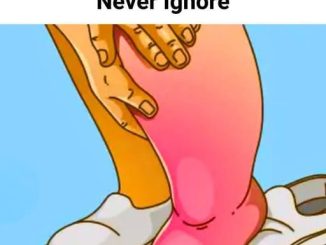Elon Musk, the billionaire entrepreneur and newly appointed head of the Department of Government Efficiency (DOGE), has found himself at the center of controversy following his appearance at Donald Trump’s inauguration as the 47th President of the United States. Musk’s impassioned speech about the future of humanity sparked an uproar when a gesture he made was likened by some to a Nazi salute. The backlash has ignited debates across social media, with critics and supporters clashing over the intent and interpretation of the moment.
The Gesture That Sparked Controversy

The incident occurred during the inauguration celebrations held at the Capital One Arena. Musk delivered a fiery speech about advancing civilization, touching on his vision for humanity’s future on Mars. At one point, he pounded his chest and extended his right arm in an angular motion, declaring he felt it in his “heart.” He later repeated the gesture, turning toward an American flag as the crowd erupted in applause.
The seemingly innocuous action quickly drew criticism online. Some viewers accused Musk of performing a Nazi salute, a gesture historically associated with fascist regimes. Critics, including prominent figures, took to social media to voice their outrage, calling the action “deplorable” and “evocative of troubling imagery from history.”
Social Media Reactions: A Divided Narrative
Social media platforms lit up with heated debates as critics lambasted Musk for his actions. Democratic strategist Sawyer Hackett accused Musk of aligning with authoritarian symbolism, while others suggested the gesture was deliberate. One viral post claimed, “Within hours of Donald Trump taking the oath of office, billionaire Elon Musk gave the Nazi salute during his speech. It was not an accident or a mistake; he did it twice.”
Media personalities also weighed in. CNN anchor Erin Burnett called the gesture “odd-looking,” and co-anchor Kasie Hunt remarked that it was “not something you typically see at American rallies.”
However, defenders of Musk were quick to counter these claims. Some highlighted his neurodivergence, citing that Musk, who has Asperger’s syndrome, might express enthusiasm in unconventional ways. Newsweek’s opinion editor, Batya Ungar-Sargon, tweeted, “This is a man with Aspergers exuberantly throwing his heart to the crowd. We don’t need to invent outrage.”
Elon Musk Fires Back
Never one to shy away from controversy, Musk responded swiftly to the backlash. In a post on X (formerly Twitter), he dismissed the uproar as an overblown attempt to smear him. “Frankly, they need better dirty tricks. The ‘everyone is Hitler’ attack is so tired,” he wrote, referencing previous accusations he has faced since distancing himself from the Democratic Party.
To further defend himself, Musk shared a video of his entire speech. However, critics noted that the footage—sourced from a Fox broadcast—did not include the initial gesture that sparked the controversy. This omission added fuel to the fire, with some alleging that Musk or his team had intentionally edited the video to avoid scrutiny.
Historical Context: The Roman Salute Debate
Amid the accusations, some commentators suggested that Musk’s gesture more closely resembled the “Roman salute,” a gesture used in ancient Rome to signify respect and allegiance. While the Roman salute predates fascist regimes by centuries, it has been co-opted by authoritarian movements throughout history, leading to its association with extremist ideologies.
This historical nuance became a focal point for those attempting to de-escalate the situation. The Anti-Defamation League (ADL), an organization dedicated to combating anti-Semitism, issued a statement describing Musk’s gesture as an “awkward moment of enthusiasm” rather than a deliberate Nazi salute. The ADL urged all sides to extend grace and focus on fostering unity in this “new beginning.”
Right-Wing Extremists’ Interpretation
Adding complexity to the situation, some far-right extremists openly celebrated the gesture. Leaders of neo-Nazi groups and far-right platforms took to their channels to interpret Musk’s actions as a nod to their ideology. Rolling Stone reported that Christopher Pohlhaus, leader of the neo-Nazi group Blood Tribe, expressed delight, writing, “I don’t care if this was a mistake. I’m going to enjoy the tears over it.” Similarly, Gab founder Andrew Torba praised Musk, calling the moment “incredible.”

This unsettling response intensified scrutiny of Musk’s actions, as critics argued that even unintended associations with extremist groups could embolden dangerous ideologies.
A Call for Perspective and Unity
In a time of heightened political tensions, the incident has become a flashpoint for broader debates about symbolism, intent, and interpretation. While critics have been quick to condemn Musk, others urge caution before jumping to conclusions.
The ADL’s measured response emphasized the importance of giving individuals the benefit of the doubt. “In this moment, all sides should give one another a bit of grace,” the organization stated. “Let’s hope for healing and work toward unity in the months and years ahead.”
Musk’s Vision: Lost Amid the Controversy
Elon Musk just did a Nazi salute on national television.
— Anna Horford (@AnnaHorford) January 20, 2025
Elon Musk just did a Nazi salute on national television.
Elon Musk just did a Nazi salute on national television.
Elon Musk just did a Nazi salute on national television. pic.twitter.com/dGdlPRWRMn
Amid the uproar, Musk’s original message about humanity’s future risks being overshadowed. His speech focused on ambitious goals, including the establishment of safe cities, secure borders, and advancing space exploration through missions to Mars. By intertwining his vision with an emotional appeal, Musk aimed to inspire optimism about the potential of government efficiency and technological innovation.
However, the focus on his gesture highlights the challenges of public perception in an era of viral outrage. For a figure as polarizing as Musk, even an unintended action can dominate headlines and spark controversy.
Conclusion
Elon Musk’s appearance at Donald Trump’s inauguration has ignited a firestorm of debate, with critics and supporters fiercely divided over the intent behind his controversial gesture. While some view it as an unfortunate misstep, others see it as an exaggerated response to a moment of enthusiasm.
The incident underscores the power of symbolism in today’s hyperconnected world, where actions are dissected and interpreted through countless lenses. As Musk continues to navigate the fallout, the broader message of his speech—a call for innovation, unity, and progress—remains a poignant reminder of what truly matters in shaping the future.


